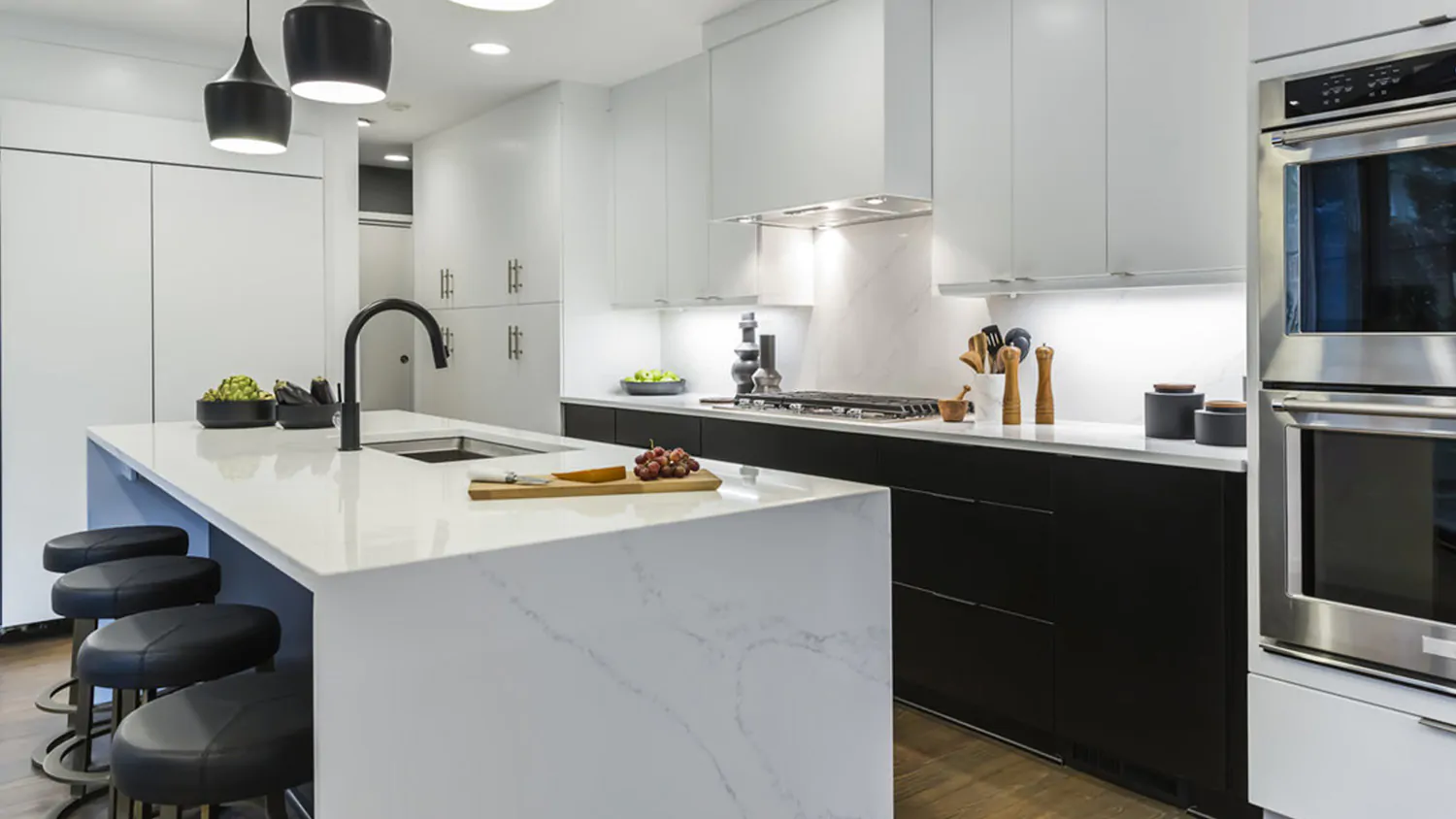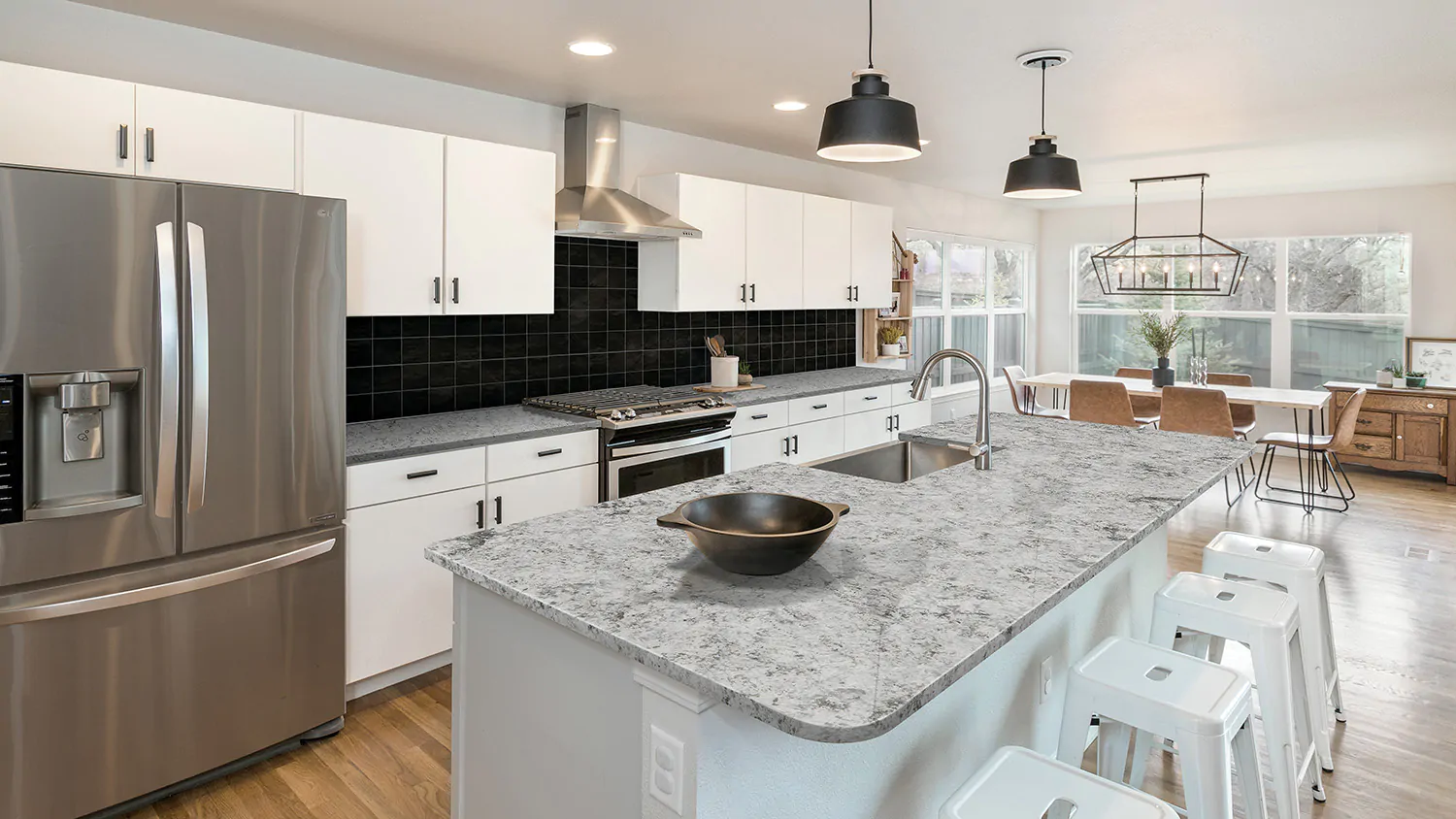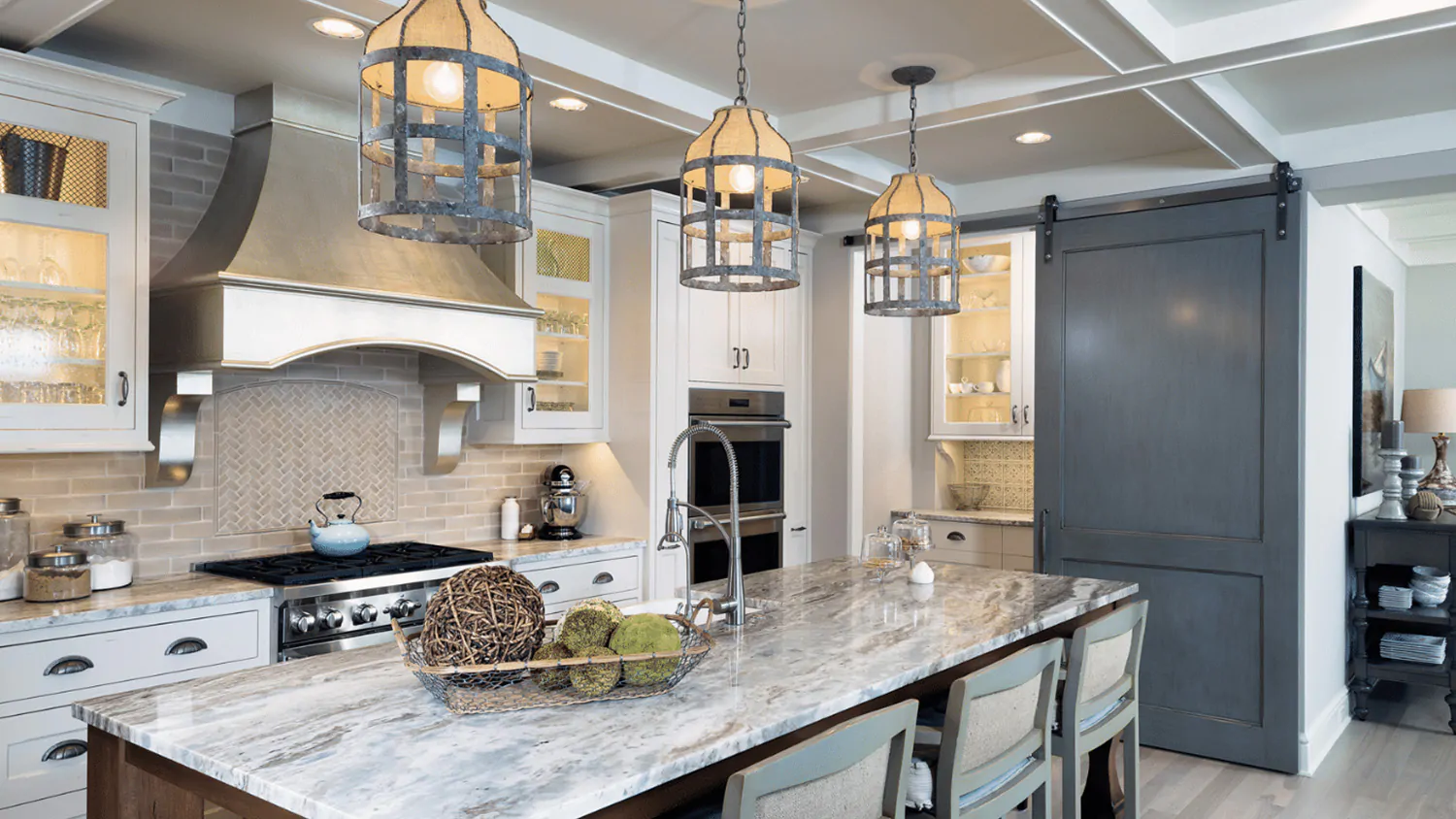
Learn all you need to know to choose the perfect countertop material for your project.
Which is Better, Granite or Quartz?
Both quartz and granite offer high levels of durability, and straightforward care instructions. Though granite offers a wider range of colors and patterns, both materials have stunning options to choose from. However, there are some key factors you should consider when it comes to picking a winner: overall durability, stain and scratch resistance, maintenance, color, where you plan to use it, and price. Let’s take a closer look.

Main Features:
- Heat Resistance: Both materials do well with normal cooking temperatures but if you are looking for the highest level of heat resistance, granite is the way to go. Regardless of which stone you choose, we recommend placing a trivet or hot pad beneath anything that may give off very high heat (such as air fryers, crock pots, or pans fresh off the stove).
- Staining: When it comes to staining, quartz has a slight advantage over granite. Due to the resin used to form the stone into countertops, quartz is nonporous which means it is extremely difficult to stain. While granite is also stain-resistant, the fact that it is porous means there is a higher chance that items like oil, coffee, or wine may leave a stain behind if they are left to sit for too long. So, if stain resistance is your top priority, quartz is the preferred option. However, if you are looking for countertops to use in an outdoor application, granite is the top choice because it can withstand the elements and, unlike quartz, does not contain resins that will discolor in the sun.
- Chipping or Cracking: Both quartz and granite are highly resistant to cracking and chipping, with the majority of these issues occurring from installation errors or improper care of your countertops. Quartz may crack from sudden temperature changes, so avoid placing hot pots directly on the surface. Granite is not as susceptible to cracking due to sudden temperature shifts, but in some cases may crack due to naturally occurring fissures within the stone. Quartz is up to six times harder than granite and other natural stones, but we highly recommended using a cutting board regardless of counter type to prevent dulling or damaging the surface.
- Sealing: Due to the resins used in the manufacturing process, quartz does not require sealing. On the other hand, granite is a porous surface that typically needs to be sealed upon installation and at least once per year after that. At Wholesale Cabinets, all of our granite comes pre-sealed so your countertops will be ready to use right away!

Is Quartz or Granite Easier to Clean?
The truth is, both countertop materials require similar cleaning methods. For spills and daily cleaning, we recommend using soap and water for quartz or granite. When it comes to deeper cleaning, be sure to use a specifically designed cleaner for your countertop. Avoid using abrasive cleaners, vinegar, ammonia, or general-purpose cleaners not formulated specifically for your stone. Though quartz and granite are both stain resistant, all spills should be cleaned as soon as possible. We recommend quickly wiping up any liquid spills, fruits, vegetables, or other foods before cleaning the surface with soap and water. Another fact to note when considering sanitation practices is that all of our quartz is NSF Certified. This certification means that each quartz slab is tested by NSF International to ensure it is food-safe and easy to sanitize.

Are Quartz and Granite Natural Materials?
The short answer is yes.
Granite is a natural stone found close to the Earth’s surface. This means that granite can be cut from shallow quarries using drills or explosives. Large chunks or blocks of granite are broken away from the quarry and transported to slab fabrication facilities. These facilities use polishing machines with diamond pads to make the surface smooth and bring out the stone’s natural colors and patterns.
Quartz is also a natural stone but, unlike granite, it is found deep below the Earth’s surface. Quartz is made up of silicon and oxygen and comes in all shapes and sizes, from tiny granules to large rocks or crystals. Quartz is mined using explosives and heavy equipment. Once it is unearthed, the quartz pieces are pulled from the ground using bulldozers, pickaxes, or shovels. Manufacturers crush the quartz crystals into smaller pieces. The pieces are mixed with pigments for color, along with resin or cement-based binders to fuse the stone and create an exceptionally durable surface. The quartz mineral mixture is then molded, pressed, cured, and polished to create a solid and nonporous slab.
So, Which One is Better... Quartz or Granite?
It’s clear to see that both countertop materials can be equally impressive, depending on which features are most important for your project. Quartz is generally the best alternative if you are looking for a durable countertop with timeless color options, and granite is often the best option for projects that require more color alternatives. Both countertop materials handle warm temperatures very well, are resistant to chipping, and (when purchased from Wholesale Cabinets) neither requires sealing. Granite is slightly less durable than quartz overall, but it can’t be beaten in outdoor applications. Though quartz may not be the winner for your backyard entertainment area, it does surpass granite if you want a nonporous option for your interior spaces. It’s obvious why these options have been the top counter choices for decades, so no matter your choice, the real winner will be you!